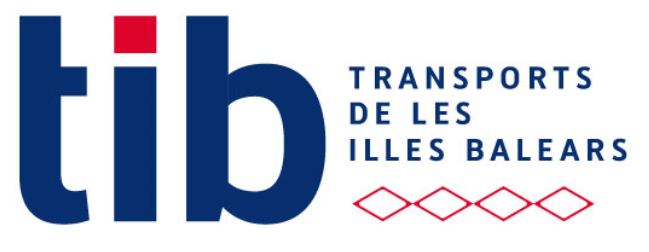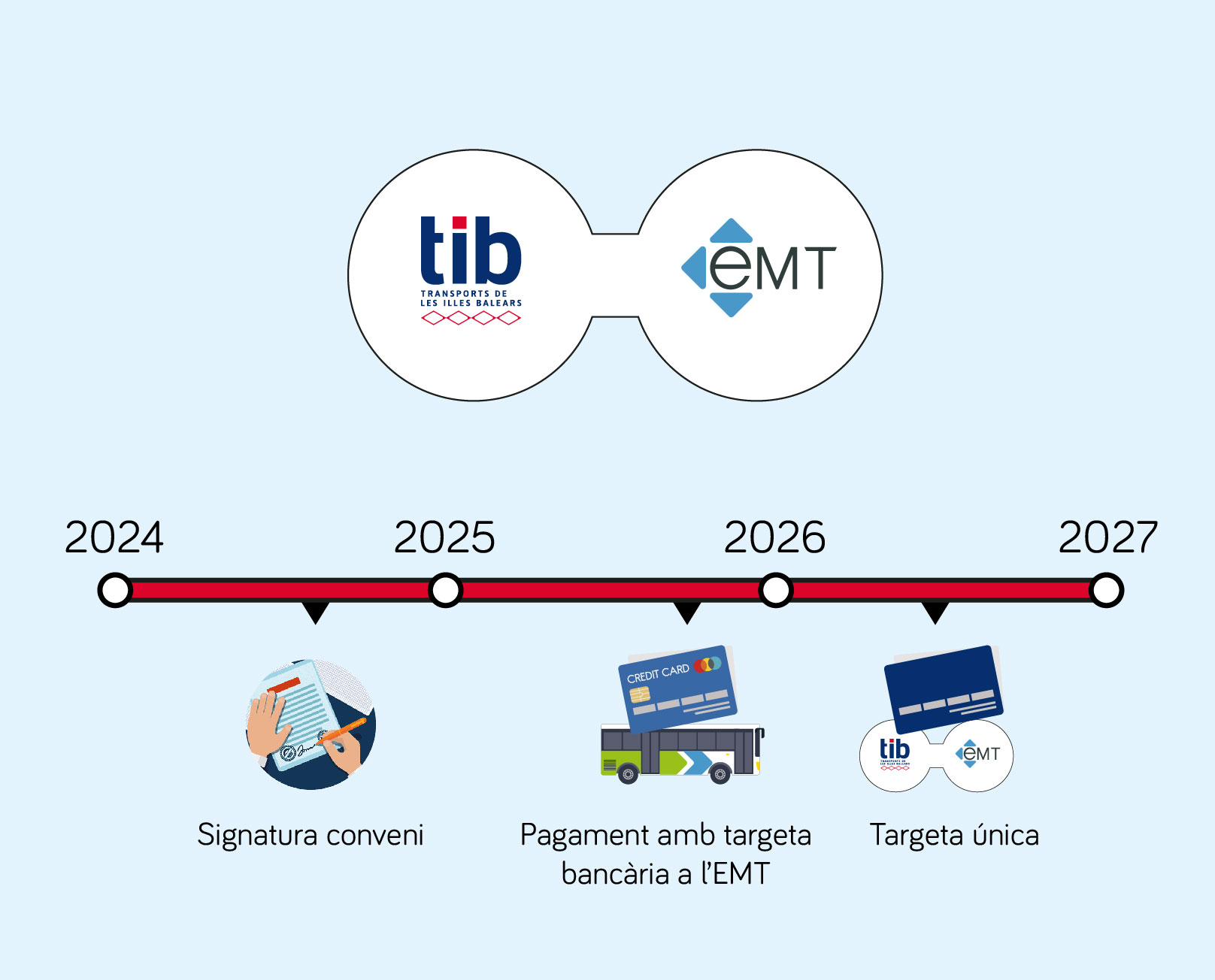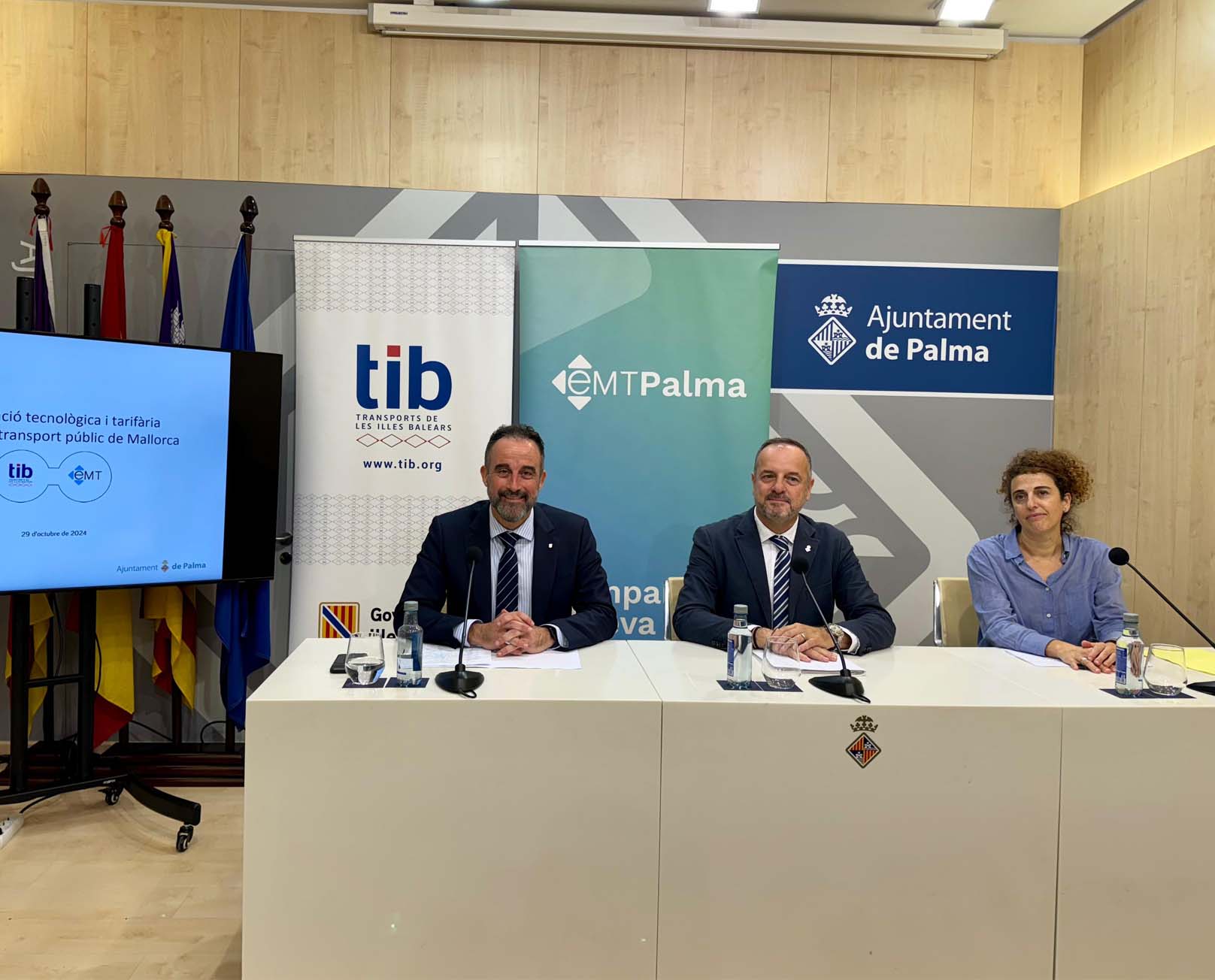Both transport entities will sign an agreement with the goal of achieving technological and fare integration by 2026, which will enable EMT tickets to be paid by bank card.
The Regional Minister for Housing, Territory and Mobility of the Government of the Balearic Islands and President of the Majorcan Transport Consortium (Consorcio de Transportes de Mallorca, CTM), José Luis Mateo, and the Deputy Mayor for Mobility of Palma City Council and President of the EMT, Toni Deudero, presented a collaboration agreement this Tuesday for the technological and fare integration of the services of the TIB network (train, metro and inter-city bus) and the urban bus network of the EMT of Palma. With the signing of this agreement, the integration process begins and is expected to enter into force in 2026. Among other improvements, this process will enable EMT users to pay for their bus tickets by bank card, as is already the case with the TIB network, which is the responsibility of the regional government.
The agreement, which will be signed in the next few days and is valid for four years, establishes the mechanisms for collaboration between the two transport entities. The purpose of the agreement is, on the one hand, to integrate EMT into the TIB's technological platform, which develops the operation and maintenance of the systems for the sale and validation of transport tickets on the inter-city network.
It also provides for alignment between the two systems to achieve an integrated fare system and a system of common zones (concentric crowns) will be established for all transport tickets. In addition, a single personal card linked to a prepaid card will be used as the transport ticket for trips on both urban and inter-city lines. A percentage and progressive discount is foreseen depending on the profile of the card holder that are the same for the whole island (general, youth, pensioner, child/student, etc.).
In terms of deadlines, the plan is that the single Intermodal Card will be valid on both transport networks (TIB and EMT) from spring 2026 and that, by the end of 2025, EMT users will be able to buy bus tickets using a bank card –in physical and digital format– as is currently the case on the train, metro and TIB buses.
The Regional Minister for Housing, Territory and Mobility, José Luis Mateo, stressed that it is "a big step" towards integration that Palma City Council will become part of CTM, "as foreseen in the law that created the Consortium in 2006, 18 years ago", and that this will enable strategies and a global vision for the improvement of public transport in Majorca to be shared. "The Government and the City Council are working together and continuously to improve public transport and make it a real alternative to the use of private vehicles," the Regional Minister remarked.
The Deputy Mayor for Mobility of Palma City Council, Toni Deudero, considers that this agreement with CTM "will not only enable us to have a common transport policy in terms of tickets and fares, but EMT users will also be able to pay the cost of the ticket by bank card, as the Consortium has the necessary technology for card payment." He also added, the fact that the City Council's entry into the Majorcan Transport Consortium "will enable the EMT to obtain funding from different regional bodies".
In addition to fare convergence, it will mean an improvement in the topping up process, as it can be done through a mobile application, the web and also the joint network of physical recharging points of CTM and EMT. Moreover, it will still be possible to buy QR single travel tickets online in advance.
"This agreement will not imply the loss of EMT's business autonomy, as the city’s transport company will maintain its independence in terms of operations, line definition and the application of reference prices", concluded Deudero.
The agreement sets out the financial commitments for technological and fare integration. On the part of the Regional Government, the technological contract assumed by CTM involves an investment of €1.86 million. Moreover, CTM is currently developing other technological innovation projects that will also result in improved service for users of all interurban public transport (TIB bus, train and metro) as well as for EMT bus users when integration becomes a reality.
Among others, CTM is working on the project to create a virtual Intermodal Card for mobile devices and on projects related to data management (big data) and improvement of the operating aid system, with improvements for users related, for example, to real-time information on bus stops or improvement of the service with more detailed control of operations, with data such as real bus occupancy or journey time, among others.
44% increase in users from 2019
The coordinated management of Majorca's public transport networks aims to provide public transport with greater operational efficiency and quality, with improvements in technology and sustainability, in a context of an ongoing increase in demand in recent years, which is also being reflected in new increases in users this year.
Since 2019, the year before the COVID pandemic, and until 2023, the growth of public transport users in Majorca has been 44% overall, from 59.5 million in 2019 to 85.6 million trips in 2023, including TIB and EMT buses, train and metro.
The increase has continued in 2024, with a 17% growth between January and September compared to the same period last year; a significant increase for two years with free travel already in place and bringing the cumulative figure in September to 75.5 million, well above any previous year with the exception of 2023.
Currently, there are already more than 500,000 residents in Majorca who travel by public transport using the Intermodal Card, 40% of whom are residents of Palma. This overall figure of more than half a million people today already exceeds by 175,000 the number of people with an Intermodal Card at the beginning of 2023, when there were almost 328,300 users.





